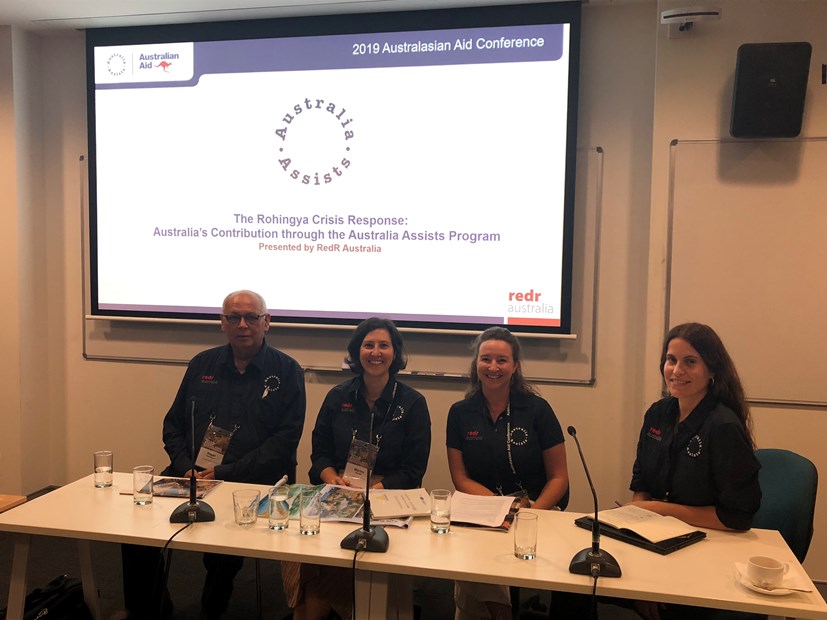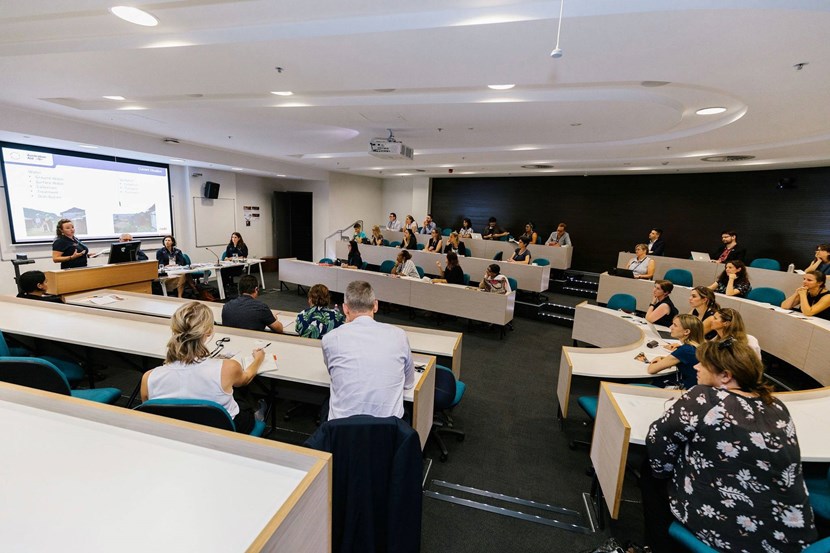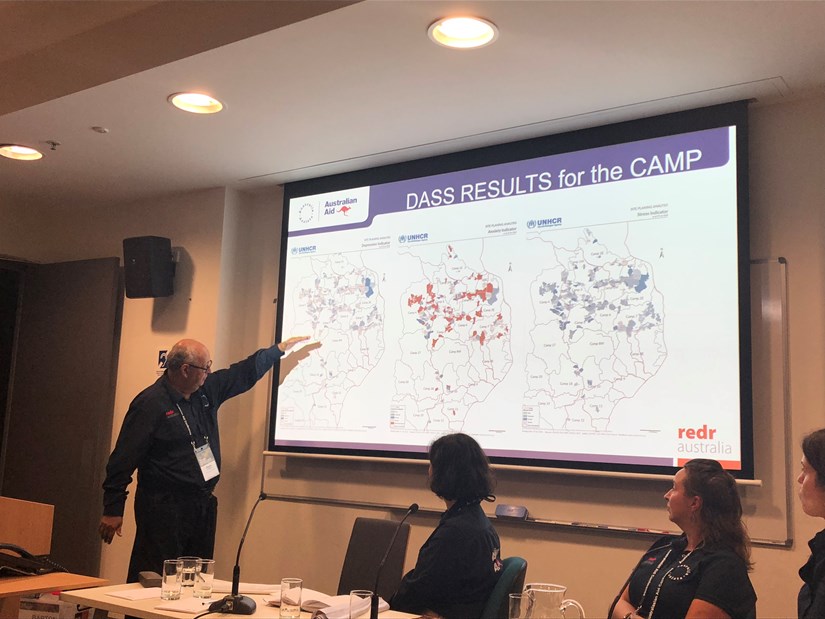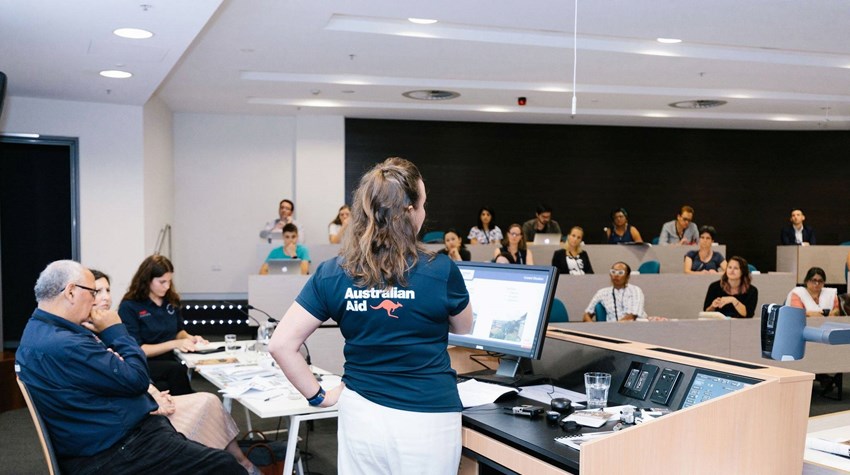Joining over 600 academics, practitioners, and policy makers to discuss and report on research undertaken in the aid and development sector over three days, the trio presented on their individual research undertaken as part of their deployments with UNHCR to Cox’s Bazar through the Australia Assists program. RedR Australia’s Monitoring, Evaluation, Accountability, and Learning Manager Kylie Harrington moderated the session.

Deployee and WASH engineer Camilla Bachet walked the attendees through her work capturing and distributing surface water in the camps, including the design of a new reservoir and temporary dams that will ensure the southern camps have water access year-round.
Following the guidelines for temporary solutions, Camilla shared her innovative uses of building materials that will be heavy enough to withstand massive quantities of water while being easily removable. One example of this was the use of stacked concrete pipes to build a bathing area in one of the dams, allowing water to flow through easily while providing a stable surface for Rohingya people cleaning in the water to stand and sit upon.
“The design we ended up with is quite unusual as there is currently no vehicle access to the reservoir, and everything has to be carried in manually,” explained Camilla.

Deployed as a Shelter Officer with UNHCR, geologist, academic, and PhD candidate Marina Drazba presented on her significant landslide research and practical interventions to ensure the Rohingya were kept safe from predicted landslides during monsoon season. This included training communities and local staff to understand the signs of landslide risk and how to best engineer preventions.
Marina shared with the audience the visual book she wrote – “The Mountain That Walks” – to teach Rohingya populations in the oral tradition how to identify landslides and landslide risks.
“The question I wanted to solve for was, how do you identify a landslide and how do you know what causes it if you’ve never seen one before?” Marina told the audience.
Experienced shelter engineer and senior academic, Dr Regan Potangaroa, has deployed twice to the Rohingya crisis response through Australia Assists, and at the conference presented on two critical pieces of research he completed while on deployment. The first of these involved an adapted DASS42 scale to assess Quality of Life, to map depression, anxiety, and stress in the Rohingya camps to better understand the specific shelter needs for differently affected communities.
In part two of his presentation, Regan spoke to the room about his work developing and deploying disaster drones to survey the camps’ landscapes, the first of their kind in the crisis, demonstrating their importance in case populations were cut off from humanitarian access during monsoon season. “The news is that engineers do have feelings,” Regan quipped to the audience, while describing technical specifications to meet the physical and psychosocial shelter needs of the camps.

Together, the three deployees were provided a deep practitioner-focused overview of the Rohingya response and the ways in which the Australia Assists program is contributing to the localisation of humanitarian solutions within the camps.
Reflecting after the presentation, Regan noted, “RedR has different objectives than the researchers and policy makers in the room, and it was great that we were there to represent those that could not, but also to put forward a practical and pragmatic perspective that is often missing from academic debate.”
An annual event, RedR Australia is looking forward to providing practitioner perspective to humanitarian research at the Australasian Aid Conference in 2020 and beyond.


